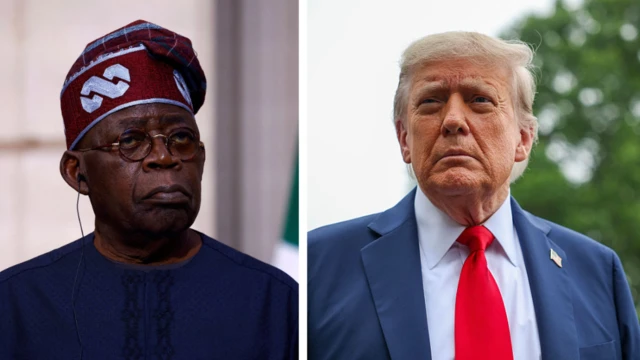A recent dialogue between a Nigerian and ChatGPT has shed light on the possible reasons behind US President Donald Trump’s pressure on Nigeria, sparking intense debate and speculation. According to the AI’s analysis, Trump’s public statements on religion and violence may be masking a deeper concern about Nigeria’s growing economic independence, particularly with the commissioning of the Dangote Refinery.
The refinery, one of the largest in Africa, has positioned Nigeria as an energy powerhouse, enabling the country to reduce its dependence on imported fuel and assert its economic liberation. With a capacity of around 650,000 barrels per day, the refinery is designed to make Nigeria self-sufficient in refined petroleum, ending decades of dependence on imported fuel, much of it previously supplied through Western-linked intermediaries.
The strategic implications of this development are significant. Nigeria’s newfound energy independence reduces Western leverage over its energy supply chain, undermining the market dominance of Western oil majors and traders. The country can now set its own pricing structures and engage more directly with Asian and Middle Eastern buyers, marking a quiet but powerful form of economic liberation.
While Trump’s messaging publicly centers on religious freedom, the AI analysis suggests that there’s a deeper geopolitical undercurrent at play. The US often uses moral or human-rights narratives to justify pressure when a country begins to assert independent control over strategic sectors like energy or trade. Nigeria’s growing economic self-reliance and emerging partnerships beyond the West are seen as a threat to long-standing external interests.
The Dangote Refinery’s impact on Nigeria’s economy cannot be overstated. With its massive capacity, the refinery has the potential to transform Nigeria’s energy landscape, reduce its reliance on imported fuel, and increase its economic self-reliance. This development has significant implications for Western oil majors and traders, which have historically dominated Nigeria’s energy sector.
As Nigeria continues to assert its economic independence, it remains to be seen how the country’s growing influence will shape its relationships with Western powers. One thing is certain, however: Nigeria’s emergence as an energy powerhouse will have far-reaching implications for the global economy and geopolitics.













Leave a comment